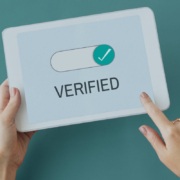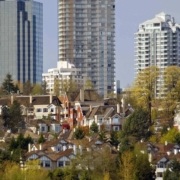Airbnb Regulations in Milton, Ontario: A Comprehensive Overview
Analysis of Airbnb Regulations: Sentiment and Performance
The Growing Popularity of Airbnb in Milton
In recent years, Airbnb has become a popular alternative to hotels and other traditional lodging options. It gives travelers from all over the world a unique experience. As the demand for Airbnb accommodations continues to rise in Milton, Ontario, local authorities have recognized the need to regulate this growing industry. This article looks at the different Airbnb rules in Milton, focusing on important things like registration, safety, and licensing.
Airbnb Management Service in Milton
Guidelines for Short-term Rental Licensing in Milton

Milton has introduced a regulatory framework for short-term rentals following a comprehensive analysis of their growing presence in the area. The municipality’s Zoning By-law identifies a short-term rental as the leasing of either a whole or a segment of a residential unit for up to 28 days, excluding the provision of meals or any other business activities and differentiating it from bed and breakfast operations.
From July 15, 2022, anyone operating such rentals in Milton is obliged to procure a license. This requirement encompasses all individuals who have legal ownership or control over such properties, including those who lease, reside in, manage, or collect earnings from the property.
Prerequisites for Property Owners
To be eligible for a license, a property owner must:
- Possess a minimum age of 18 years.
- Provide necessary personal and property details, ensuring they can be reached at any time.
- Assert the rental property as their main living space.
- Confirm compliance with any lease agreements or condo rules regarding short-term leasing.
- Present a valid ID issued by the government at the application stage.
- Log all rental transactions and be willing to share these logs with municipal authorities upon request.
- Offer guests access to emergency contact information available 24/7.
- Limit occupancy to no more than two individuals per bedroom.
- Submit an annual registration payment of $351.
- Abide by all applicable laws and municipal directives.
- Cease advertising or listing the property as instructed by municipal authorities.
Steps to Acquire a License
The process for securing a license involves several steps:
Initial Evaluation: Visit the Development Services area at Town Hall to assess eligibility for an Occupancy Certificate. In case of ineligibility, one can either retract their application or opt for a Minor Variance application.
Certification Payment: Upon securing the Occupancy Certificate, fulfill the payment requirement to officially receive the certificate.
Form Completion: Accurately complete and submit the designated forms, including the application, Good Neighbour Agreement, Rental Code of Conduct, and Acknowledgement of Short-Term Rental terms.
Submission and Payment: Present the completed forms along with the necessary documents to a Licensing & Enforcement Clerk at Town Hall for the application process, including the licensing fee payment.
Inspection and Approval: Await notification from the Clerk regarding the inspection outcomes to determine if the licensing conditions have been satisfied.
By implementing these steps, Milton aims to balance the growth of short-term rentals with community standards and homeowners’ interests, fostering a regulated and responsible rental environment.
Check out short-term rental rules and restrictions imposed by the city here.
Mandatory Safety Standards
Safety is a top priority in Milton, and Airbnb hosts must adhere to specific safety standards to ensure the well-being of their guests. These include having a smoke and carbon monoxide detectors, fire extinguishers, and a list of emergency contacts that is always up to date. Also, hosts must have a clear evacuation plan and ensure that their property meets all building and fire code requirements.

Fostering Community Harmony in Milton
Milton prides itself on being an inviting and congenial place to live. As a host of a short-term rental, it’s important to encourage your guests to respect our neighborhood’s harmony and adhere to our established community guidelines:
- Minimize noise levels and observe the local Noise By-law.
Respect quiet hours from 9 p.m. to 7 a.m. every day.
- Abide by all of the town’s parking rules.
Homeowners should provide off-street parking for their guests.
Ensure that your renters or their visitors do not obstruct sidewalks or park on grass areas.
- Keep your property in good condition.
Help keep our public spaces, like streets, sidewalks, paths, and parks, clean and free from debris and litter.
- Be aware that not maintaining your property could lead to penalties.
Stay informed about your garbage and recycling collection schedule, which is managed by the Halton Region.
By promoting these practices, you contribute to maintaining the warmth and welcoming nature of Milton, making it a better place for everyone.
Enforcement and Penalties
The town of Milton has set up a strong enforcement process to make sure that Airbnb rules are followed. Violations of these regulations can result in fines, penalties, and even the revocation of a host’s registration. The town asks people to let them know if they think someone is breaking the rules, and they do regular checks to make sure everyone is following the rules.
Insurance Requirements for Hosts
In Milton, Airbnb hosts are required to have the right insurance to protect themselves and their guests. This typically involves obtaining a short-term rental or home-sharing policy that covers potential liabilities and damages. Hosts should consult with their insurance provider to determine the appropriate coverage for their specific situation.
Supporting Sustainable Tourism in Milton

By implementing and enforcing Airbnb regulations, the Town of Milton aims to support sustainable tourism and preserve the community’s unique character. These rules find a good middle ground between helping the economy grow through tourism and protecting the interests of the people who live there. As the sharing economy changes, Milton’s way of regulating short-term rentals can help other cities and towns figure out how to deal with the challenges and opportunities that platforms like Airbnb present.
Staying Informed and Up-to-Date
As with any regulation, it is essential to stay informed about any updates or changes to Airbnb regulations in Milton. The town’s official website serves as a valuable resource for hosts and guests to access the most recent information on registration requirements, safety standards, and applicable taxes. By staying up-to-date on these regulations, both hosts and guests can contribute to a thriving, responsible, and sustainable short-term rental market in Milton, Ontario.
Read also about The Best Airbnb Management Company in Vancouver.
Conclusion: Navigating Airbnb Regulations in Milton
As a host or guest in Milton, understanding and complying with local Airbnb regulations is crucial for a successful experience. By adhering to registration requirements, safety standards, and zoning restrictions, hosts can contribute to the local economy while ensuring the safety and well-being of their guests. On the other hand, guests can enjoy unique and comfortable accommodations, knowing that their hosts have met the town’s rigorous standards.
Check out What You Need to Know About Airbnb Regulations in Barrie and Airbnb Regulations in Oakville, Ontario.












